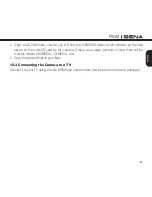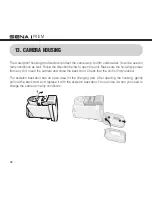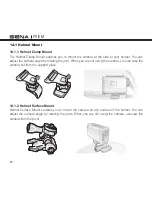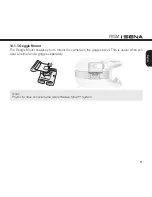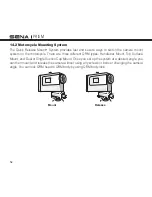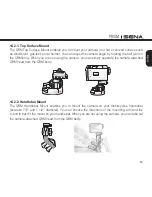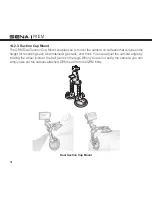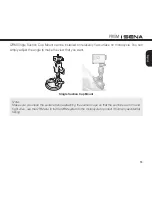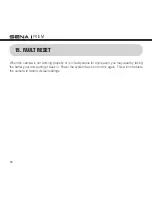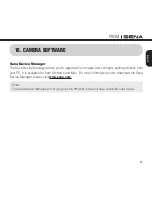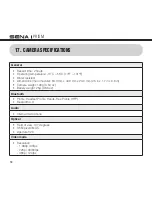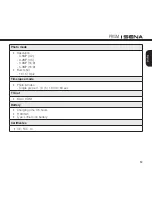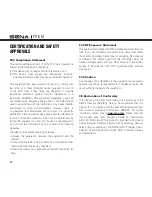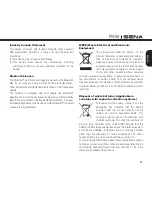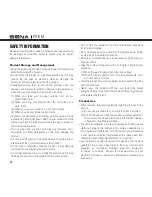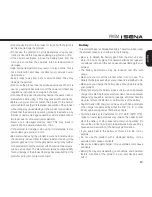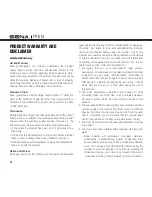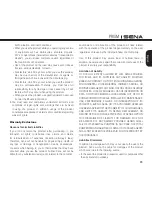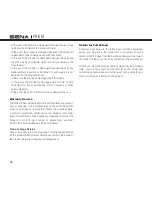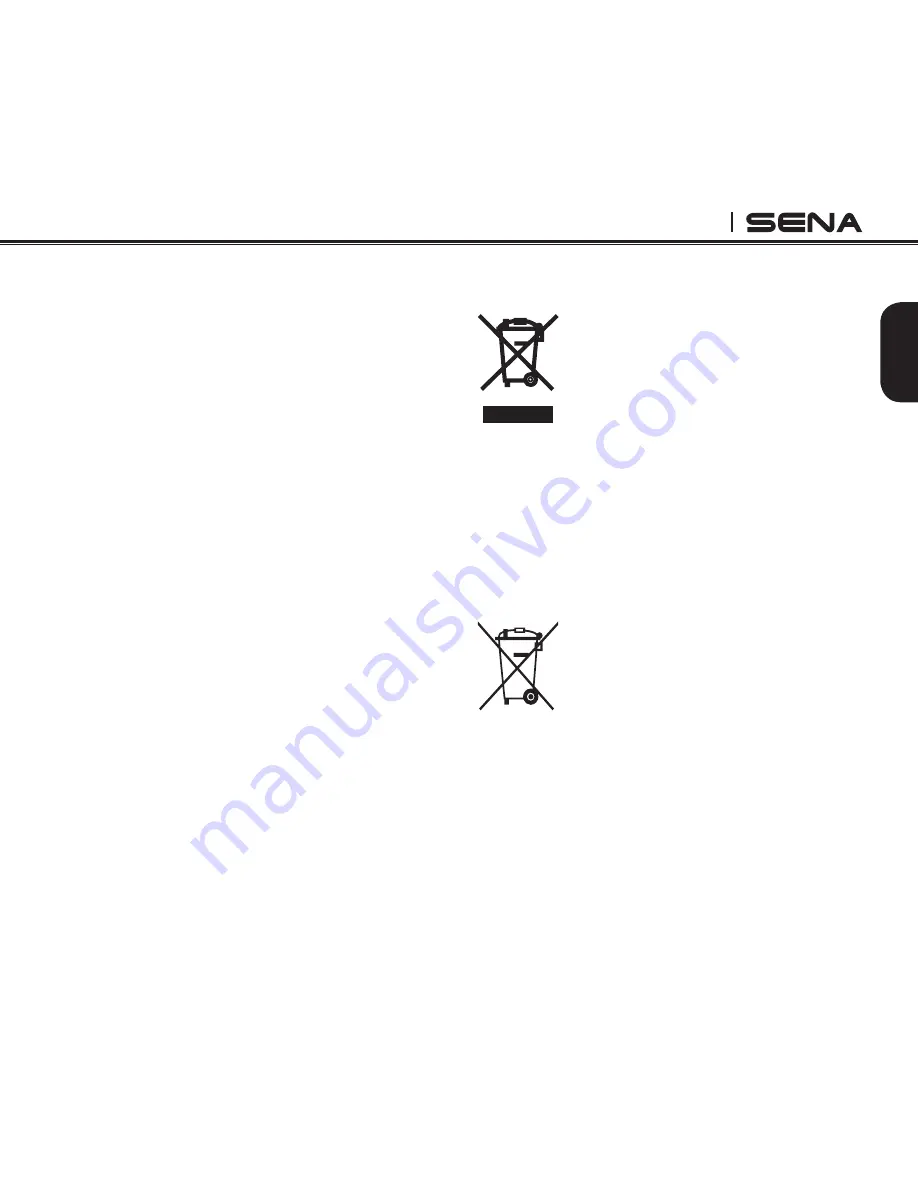
PRISM
61
English
Industry Canada Statement
This device complies with Industry Canada license-exempt
RSS standard(s). Operation is subject to the following two
conditions:
(1) This device may not cause interference.
(2)
This device must accept any interference, including
interference that may cause undesired operation of the
device.
Bluetooth License
The Bluetooth
®
word mark and logos are owned by the Bluetooth
SIG, Inc. and any use of such marks by Sena is under license.
Other trademarks and trade names are those of their respective
owners.
The product is compliant with and adopts the Bluetooth
®
Specification 3.0 and has successfully passed all interoperability
tests that are specified in the Bluetooth
®
specification. However,
interoperability between the device and other Bluetooth
®
-enabled
products is not guaranteed.
WEEE (Waste Electrical and Electronic
Equipment)
The crossed-out wheel bin symbol on the
product, literature, or packaging reminds you
that all electrical and electronic products,
batteries, and accumulators must be taken to
separate collection at the end of their working
life. This requirement applies to the European
Union and other locations where separate
collection systems are available. To prevent possible harm to
the environment or human health from uncontrolled waste
disposal, please do not dispose of these products as unsorted
municipal waste, but hand it in at an official collection point for
recycling.
Disposal of waste batteries (Applicable in
countries with separate collection systems)
This symbol on the battery, manual, or on the
packaging box indicates that the battery
provided with the product should not be
treated as common household waste. This
marking might be used in combination with
chemical symbols. The chemical symbols for
mercury (Hg), cadmium (Cd), or lead (PB) indicate that the
battery contains these substances above the reference levels in
EC Directive 2006/66. If batteries are not properly handled
when they are disposed of, these substances can cause
negative effects to human health and the environment.
For more detailed information about recycling batteries, please
contact your local civic office, other relevant department which
can provide household waste disposal services or the store
where you purchased the product.

